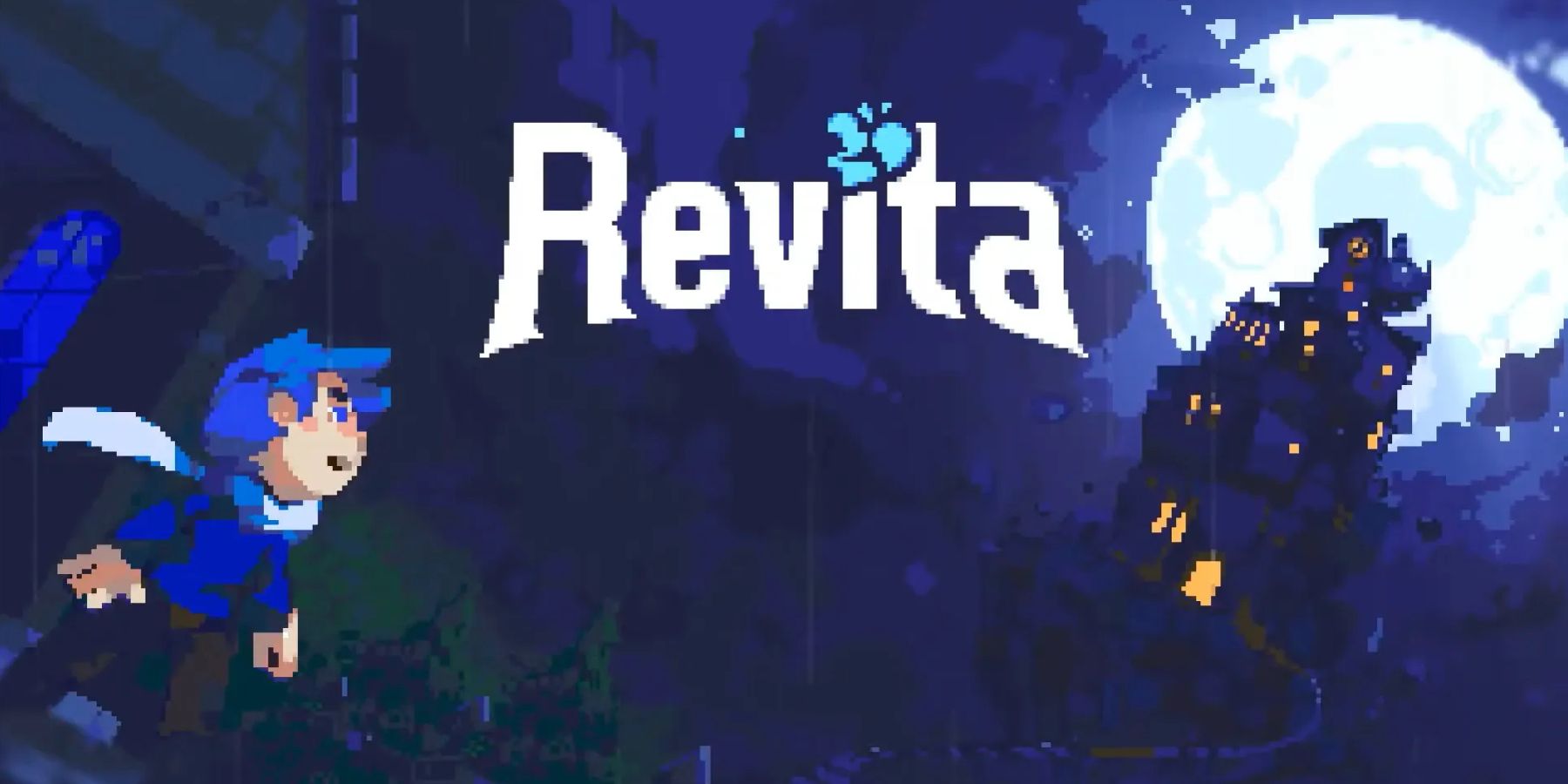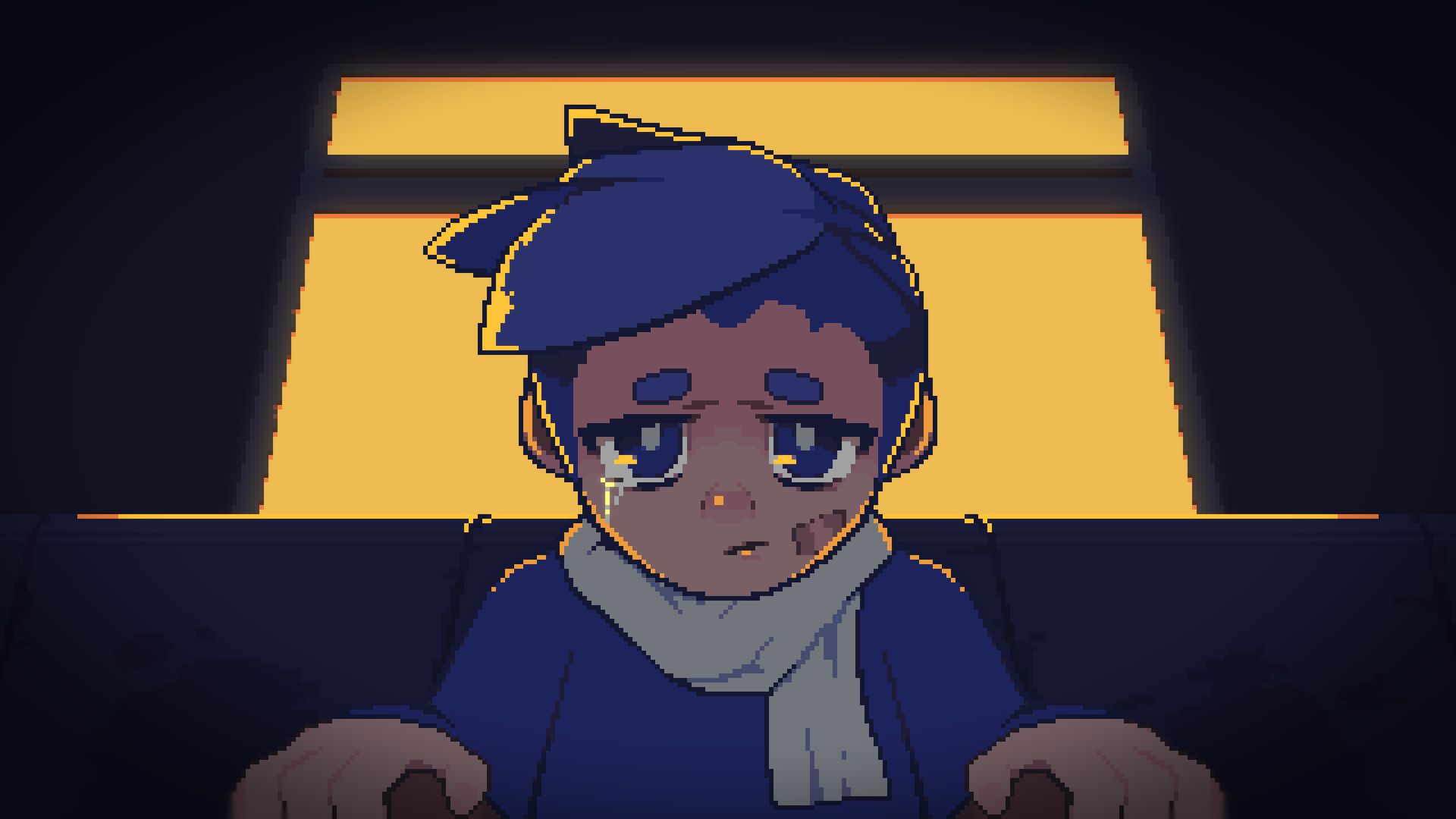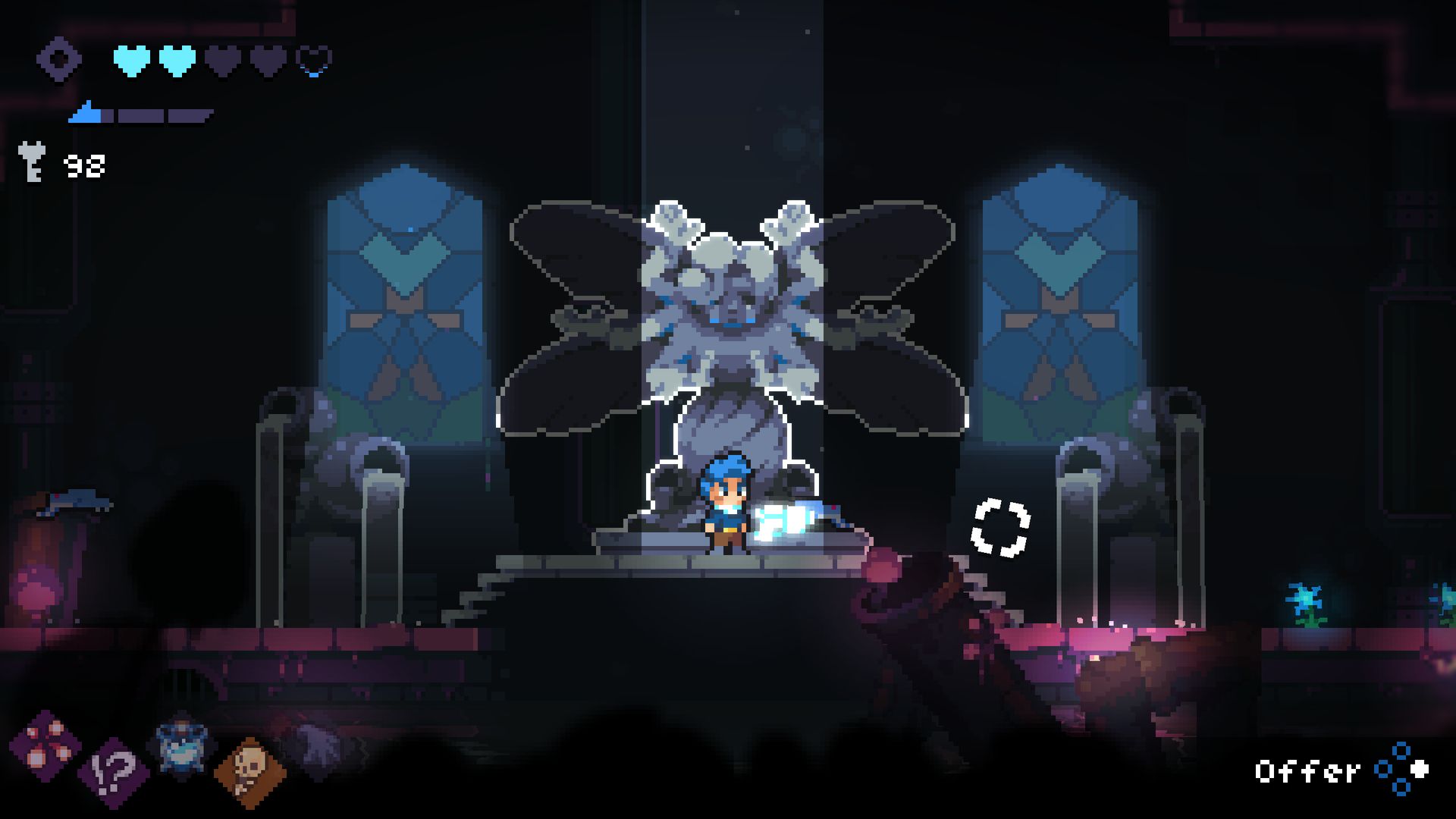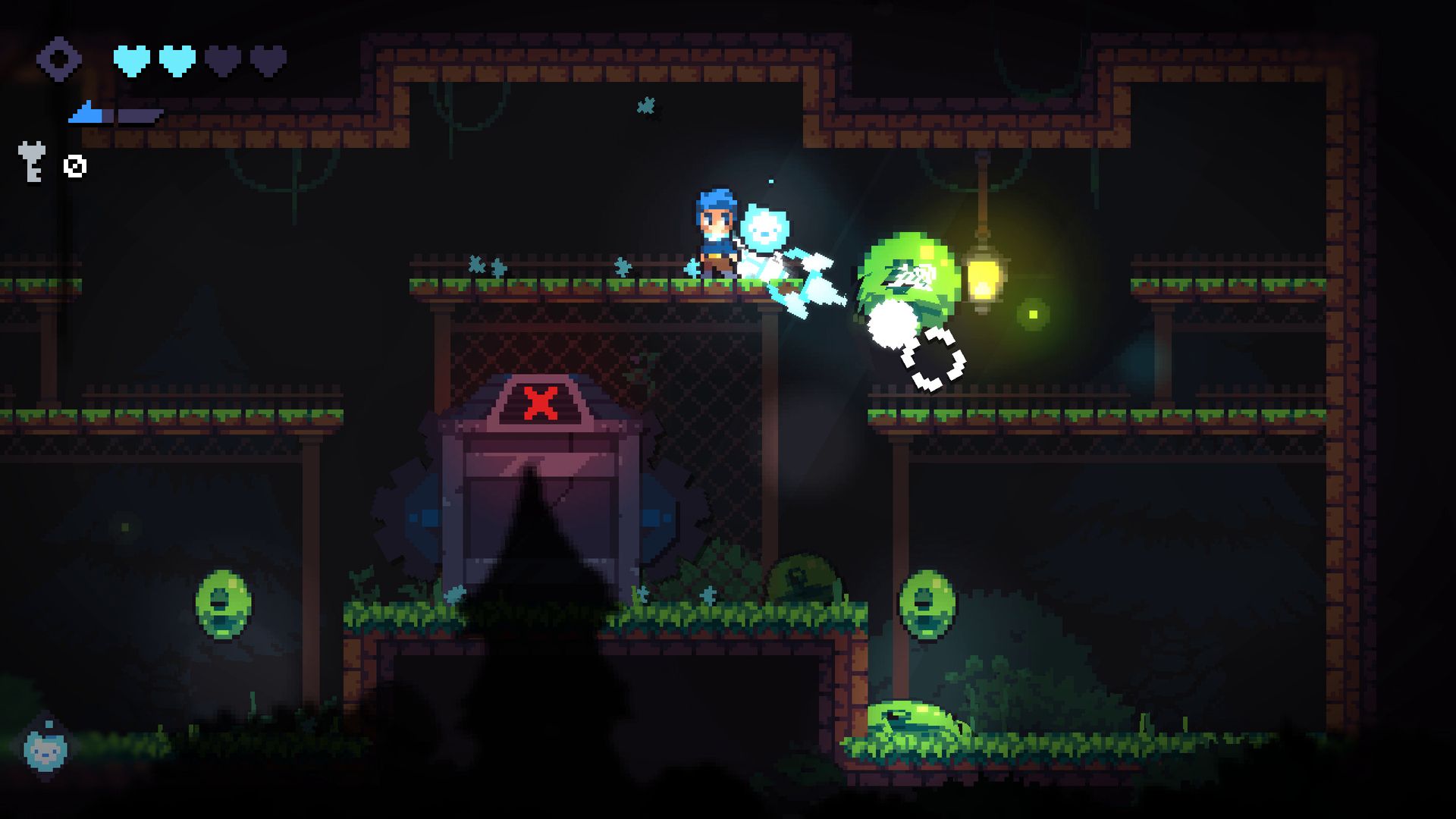In March of last year, developer BenStar released Revita on Steam’s Early Access program to gather fan feedback as the team toiled away on a game they hold near and dear to their hearts. The care BenStar has put into the final product is always present in this endearing indie game. Revita markets itself as a twin-stick rogue-lite platformer with mechanics inspired by 2011’s seminal Binding of Issac. Now at its full 1.0 launch, Revita proves itself as a charming game featuring crisp controls, an addictive gameplay loop, and an excellent soundtrack. The game may contain a bit of a learning curve, but it should come to please many rogue-like game fans.
Revita opens with the player controlling an amnesic child who has awakened at a mysterious metro station. The story presents itself in a seen-not-told manner that requires players to take in pieces of the world to understand what has happened to the boy. The player’s primary goal is to reach the top of the final clock tower by progressing through a series of smaller towers, each containing multiple floors and a boss at the top with a thematic twist. Along the way, the player will meet various NPCs that will aid them on their journey, each one unlocking new mechanics and game progression systems.
Beautiful sprites and colorful combat arenas litter Revita's visual experience. The game succeeds in never looking very dull in its backdrops despite reusing plenty of geometry throughout its multiple towers. Enemy designs are varied and unique, and it won't take too long for players to remember an enemy’s move set simply by glancing at the screen. Filling out the world of Revita is a great soundtrack that captures the melancholy mood of the Memoria Station hub area while also adding memorable jingles to the fast-paced floors where combat takes place. There is also a neat element of customizability to the game; [layers can outfit the main character with hats and decorate the walls of Memoria Station thanks to unlockable blueprints.
Combat is one of Revita’s greatest strengths, feeling very similar to platforming games like Cuphead. Revita’s gameplay relies on players becoming masters of dashing, jumping, and shooting during bullet-hell style combat scenarios that gradually become more hectic. Although initially hard to get accustomed to, the game’s usage of the left bumper and left trigger for jumping and dashing became intuitive as the action got more intense at later levels. Revita is a challenging game at first and does have a bit of a learning curve, but the payoff is well worth it when players find themselves gliding through levels with grace, masterfully dodging an onslaught of bullets and lasers.
Revita sets itself apart from its platforming contemporaries with its unique use of player health as a currency. Relics, pickups, and various other items in Revita require the player to sacrifice a portion of their health in exchange for goods and services. This risk-reward health management system makes players think about their health and skill level in new ways. A better player, confident in their abilities, may have the luxury of purchasing an expensive level 2 rarity relic for multiple hearts at one of the game’s various relic fountains. However, lower-skilled players who bet low and sacrifice half a heart or a whole heart at chests can still be rewarded with valuable relics that can dramatically change how the game is played.
Players can acquire more health by defeating enemies and picking up their souls, filling up the Soul Meter. Players can then use the Souls Meter to restore hearts. A combo system is also unlocked early on that boosts how many souls players collect based on how quickly they can defeat a room of enemies. Revita hammers home the importance of mastering its systems at all times and handsomely rewards players as they get better at the game; however, it has multiple avenues for progression as players fail and try again in their pursuit of mastery.
Notably, Revita is a rogue-lite, which means that the game will constantly throw new things at the player on each run. While skillful play will get players far in Revita, it is the constant cycle of failing and trying again where progression really occurs. Every death becomes an opportunity to find something new, whether it be a secret room containing a new NPC or a coveted Celestial Weapon that wipes enemies clean off the map, there is always something to discover. Whatever is discovered will directly help the player or even curse them with debuffs if they’re unlucky. Revita features a myriad of relics with plenty of variety, and players can unlock even more relics with soul coins in the game's hub area. Many relics will boost the player’s stats, and some even have the capacity to alter the player’s approach to combat scenarios completely. A relic that may not have been perceived as valuable could become the key to another run’s build if the synergy is right. Only through repeated tries will players discover everything the game has to offer.
Additionally, Revita features a procedural generation system that creates a unique run each time the player fails. No two runs ever truly play out in the same way. Every spawn generates new floors containing new enemy placements, new relics, new secret rooms, and new level layouts. While the levels never felt as if they varied much in their structure, players will quickly find that the game changes just enough on every floor to always feel fresh. Entering a new room, assessing the situation, and acting upon a plan made only within a span of seconds is constantly engaging. The wide variety of items, builds, discoverable NPCs, and procedurally generated nature of Revita makes the whole experience addicting.
Revita is an excellent addition to the rogue-like genre’s ever-expanding library of games and one that fans should have on their radar. It doesn’t challenge current genre conventions much, but what it does do, it does well. Revita introduces an interesting health-management system that constantly makes players think about the consequences of their actions and features satisfying combat, responsive platforming, and a wonderful soundtrack. It all comes together to create an addicting package that will keep players returning to the game’s charming towers and somber metro stations for many hours to come.
Revita is available now for PC and Switch. Game Rant was provided a PC code for this review.




